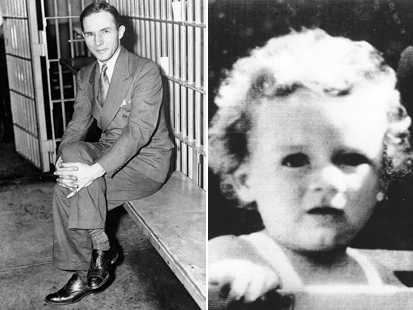9) The new Old Guard was pushing for the government to actually help businesses to achieve corporation status.

10) The Old Guard achieved it's goals by placing in the courts loyal members to their laissez faire ideals.
11) Harding appointed 4 of the 9 Supreme Court justices. His selection of justices allowed his policies to extend into the 1930's because these justices were mentally guided by ideologies similar to that of Harding.
12) Ex-president Taft became chief justice.

13) The Supreme Court successfully assaulted the Progressive legislation by taking away child labor laws, worker rights, and enforcing laissez faire oriented laws.
14) The Supreme Court overturned women's laws with the following logic: because they can now vote and have equal legal status, they should have equal status in laws regarding the workplace.

15) Trusts were basically ignored/allowed to grow under Harding. Laws against these trusts were basically disregarded by trusts and government officials alike.
16) Self-regulation of companies was Hoover's policy because he firmly believed competition would punish those that did not.





 Needless to say, it was creepy and bad..
Needless to say, it was creepy and bad..

 18) Much like a product advertiser (Sham-Wow!), George Creel's job was to sell America to the idea of going to war and to get the world to buy into Wilson's 14 Points. With a bulging staff of 150,000, Creel's organization piled on the mentally-encapsulating patriotic propaganda.
18) Much like a product advertiser (Sham-Wow!), George Creel's job was to sell America to the idea of going to war and to get the world to buy into Wilson's 14 Points. With a bulging staff of 150,000, Creel's organization piled on the mentally-encapsulating patriotic propaganda. 19) The pro-war message saturated popular society, manifesting itself in movies, on walls, in leaflets that fall! The colors shined brilliantly from the covers of magazines to books. Creel was so sneaky; he stole isolationism from the hearts of man, what a crook..
19) The pro-war message saturated popular society, manifesting itself in movies, on walls, in leaflets that fall! The colors shined brilliantly from the covers of magazines to books. Creel was so sneaky; he stole isolationism from the hearts of man, what a crook.. 20) Creel was so successful at exciting the American emotions of patriotism and stewardship for the war that he ended up hyping Wilson up to being someones whose shoes could not be filled. This would prove to be fatal when the president failed to fulfill the hopes and dreams of his faithful followers.
20) Creel was so successful at exciting the American emotions of patriotism and stewardship for the war that he ended up hyping Wilson up to being someones whose shoes could not be filled. This would prove to be fatal when the president failed to fulfill the hopes and dreams of his faithful followers.










 The 16th Amendment allowed the federal government the right to collect an income tax from its citizens as it pleased, although it did start out only as a modest thing. Wislon actively contributed to its legitimacy as he continued his ascendency over the triple wall of priviledge
The 16th Amendment allowed the federal government the right to collect an income tax from its citizens as it pleased, although it did start out only as a modest thing. Wislon actively contributed to its legitimacy as he continued his ascendency over the triple wall of priviledge



 The Worker's Compensation Act set up a system by which a federal civil servant would receive support if he or she were to become disabled somehow. Again, this was pushed by Wilson the progessive, whose mind was on the upcoming elections.
The Worker's Compensation Act set up a system by which a federal civil servant would receive support if he or she were to become disabled somehow. Again, this was pushed by Wilson the progessive, whose mind was on the upcoming elections.
 The Clayton Anti-Trust Act strengthened the Sherman list of non-OKed business practices, while making labor and agricultural unions legal. Wilson passed this regulation as part of his plan to scale the triple wall of priviledge for progressives.
The Clayton Anti-Trust Act strengthened the Sherman list of non-OKed business practices, while making labor and agricultural unions legal. Wilson passed this regulation as part of his plan to scale the triple wall of priviledge for progressives.

 The Elkins Act sought to fight rebates in the railroads industry towards companies. Heavy fines were set in place to disuade the two from giving or recieving these monetary evils. Teddy Roosevelt pushed this because the economy needed something stronger than the Interstate Commerce Commission to regulate trusts.
The Elkins Act sought to fight rebates in the railroads industry towards companies. Heavy fines were set in place to disuade the two from giving or recieving these monetary evils. Teddy Roosevelt pushed this because the economy needed something stronger than the Interstate Commerce Commission to regulate trusts. The Hepburn Act targeted free passes (bribery) among the railroads. It also expanded the ICC to include companies, sleeping car companies, and pipelines. Teddy implemented this act to target the badness, not the bigness, of trusts.
The Hepburn Act targeted free passes (bribery) among the railroads. It also expanded the ICC to include companies, sleeping car companies, and pipelines. Teddy implemented this act to target the badness, not the bigness, of trusts.